All of that said, I loved the country and I want to go back.

A little background info...
Population 13 million, Malawi is a small country in Sub-Saharan Africa. Malawi never had a civil war but lives next-door to Moçambique and suffered with that country through the 1970’s and again in 2002 during the floods. It had the dubious distinction of being named seventh poorest country in the world in 2001. And that was before the most recent famine.

The national industries (tea, tobacco, sugar) are privately owned, by foreign interests. Most Malawians are subsistence farmers, even those who have a nominal job on one of the plantations ($40 a month doesn’t feed a family of six in any economy). Balanced diets are rare. Running water is a luxury, and even a proper bore-hole isn’t guaranteed in a given village.
The Health-care System
Based upon the British system, Malawi has a two-tier system of free government-run public health care, with expensive private hospitals for those who can afford to pay for them. The differences between the two systems are staggering, but also obvious. They are everything that Canadians fear will happen here: whereas the private system has everything anyone can expect from a hospital, with prices commensurate, the public system cannot afford doctors or equipment. Waiting lists are enormous, and people often die simply trying to get to see a health professional.
“Medical Officers” are pseudo-professionals with one to two years of post-secondary training who often wind up running their own clinics. The country in is the process of developing its own medical school, if for no other reason than the fact that its medical school candidates have been until now trained in Britain, and tend to be poached by first-world nations rather than returning to work in Malawi.
The Challenges
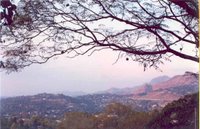 As elsewhere in Sub-Saharan Africa, the main roadblocks are poverty, malnutrition and HIV. And like elsewhere, the three are interlinked. The official figure in Malawi is 14-17% of the population are HIV positive. HIV is killing off the productive generation. There aren’t enough teachers, labourers, farmers.... breadwinners.... parents. Education suffers. Food production suffers. Famine ensues, more die. Infant mortality is one in ten, average life expectancy is 41 years. National industries suffer, poverty increases.
As elsewhere in Sub-Saharan Africa, the main roadblocks are poverty, malnutrition and HIV. And like elsewhere, the three are interlinked. The official figure in Malawi is 14-17% of the population are HIV positive. HIV is killing off the productive generation. There aren’t enough teachers, labourers, farmers.... breadwinners.... parents. Education suffers. Food production suffers. Famine ensues, more die. Infant mortality is one in ten, average life expectancy is 41 years. National industries suffer, poverty increases.There are hundreds of programmes in existence in Malawi trying to break the cycle at all points, and I was part of several of them during my time there. As a teacher, bringing a little piece of a better education to try and give a few students a chance to do something other than labour on a tea plantation. As an AIDS activist, with my students, encouraging them to challenge stereotypes and to protect themselves.
The fact that the antiretroviral drugs which have converted HIV from a death sentence into a chronic disease in the first world are still not available to all but a very lucky few in Malawi should not be overlooked. A few thousand out of the estimated 2 million people who need them are actually getting these drugs according to UNAIDS.
Nobody asked me but...
Our responsibility is not to throw money at the problems of this country. It is not to send little packages and consider ourselves as having done “our part.”

We need to be activists, to push the World Bank to treat this country fairly so that it doesn’t spend its GDP paying off interest on its debts ($3 billion!!) rather than on its people. We need to be aware of the corruption that has been crippling this tiny country, which built this massive debt (Banda died a very wealthy man, and Muluzi bought a house in Knightsbridge at £11 million around the same time the country’s grain reserve mysteriously vanished in 2002), and to make it known that this is unacceptable. We need to denounce tied aid. We need to force our government to advocate for Malawians to get better prices on prescription drugs, just as it forces the drug companies to give us reasonable prices.
We need to be aware and wary of the Live-Aid Legacy which paints these strong and intelligent people as people who need our help. They don’t need our help, but they do need our co-operation.

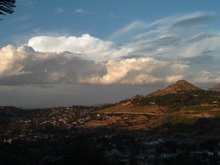

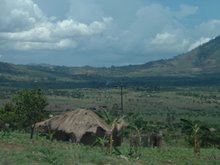
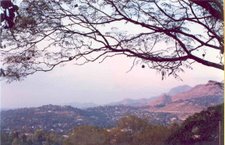
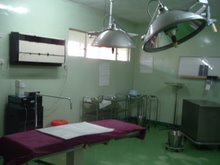
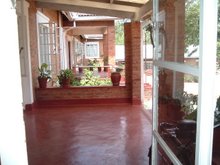



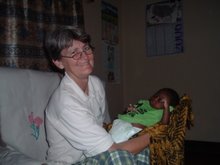



1 comment:
And hey, it's such a hot travel destination that even Madonna's going there! http://edition.cnn.com/2006/WORLD/africa/10/05/madonna.malawi.ap/
Post a Comment